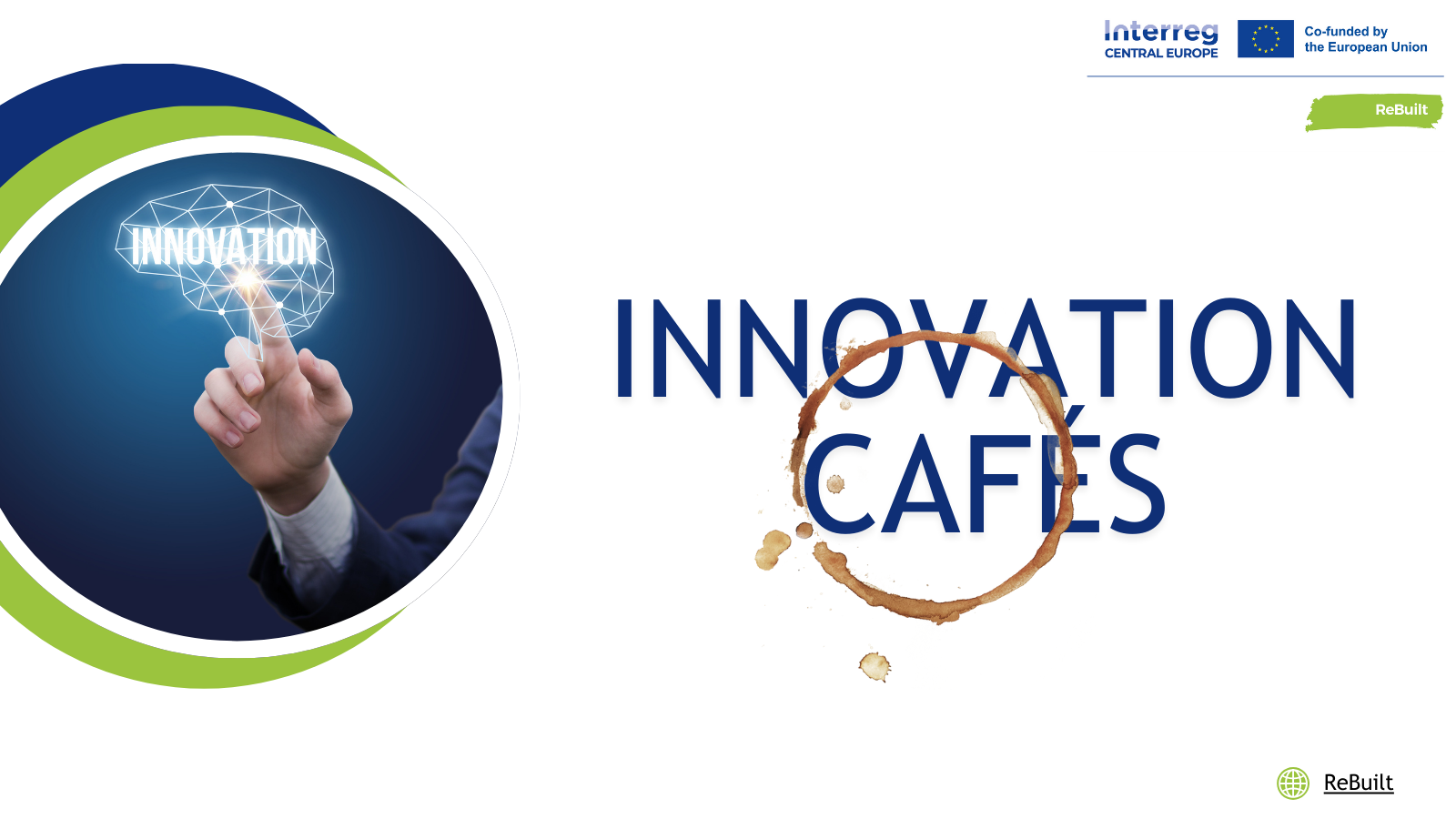The Innovation Cafés were organised by all project partners of the ReBuilt project, which focuses on circular and digital solutions in construction. The events dismantled traditional silos, fostering the co-creation of ideas to address critical challenges in the construction industry, particularly in sustainability and the circular economy. They focused on reducing waste, enhancing resource efficiency, and promoting sustainable construction practices. International collaboration enabled participants to exchange knowledge, identify best practices across borders, and accelerate the scaling of innovations.
3# Innovation Café, 14.3.2025
The third online Innovation Café was organised by Slovenian, Croatian and German partners.
Three innovations were presented:
-
Felix Wiese BETTER CONCRETE (Germany) Software tool that enables cheaper and more sustainable concrete production for ready-mix concrete manufacturers, saving cement by optimising packing density in concrete plants and producing CO2 reduced concrete.
-
Dr. Shivakumar Mani, CoGreen d.o.o. (Slovenia) Development of a highway noise barrier made of hempcrete, which is environmentally friendly, recyclable and has a lower embodied energy for a longer service life.
-
Dr. Majda Pavlin, ZAG (Slovenia) The project aims to utilise waste materials that would otherwise be sent to landfill, develop innovative, environmentally friendly and durable pavements with improved performance characteristics, and reduce the carbon footprint through circular economy practices.
Conclusion
The presentations and discussions provided valuable insights into the future of sustainable materials and innovation in the construction industry. While each project demonstrated significant progress in material development and pilot production, the path to commercialization remains a challenge due to regulatory barriers, production efficiency concerns, and cost competitiveness. The need for further research, investment, and industry partnerships was a recurring theme, along with the importance of addressing market acceptance and scalability. Overall, the session reinforced the potential of innovative, wastebased materials in reducing carbon footprints and promoting circular economy principles, while also highlighting the crucial next steps required for broader adoption and impact.
